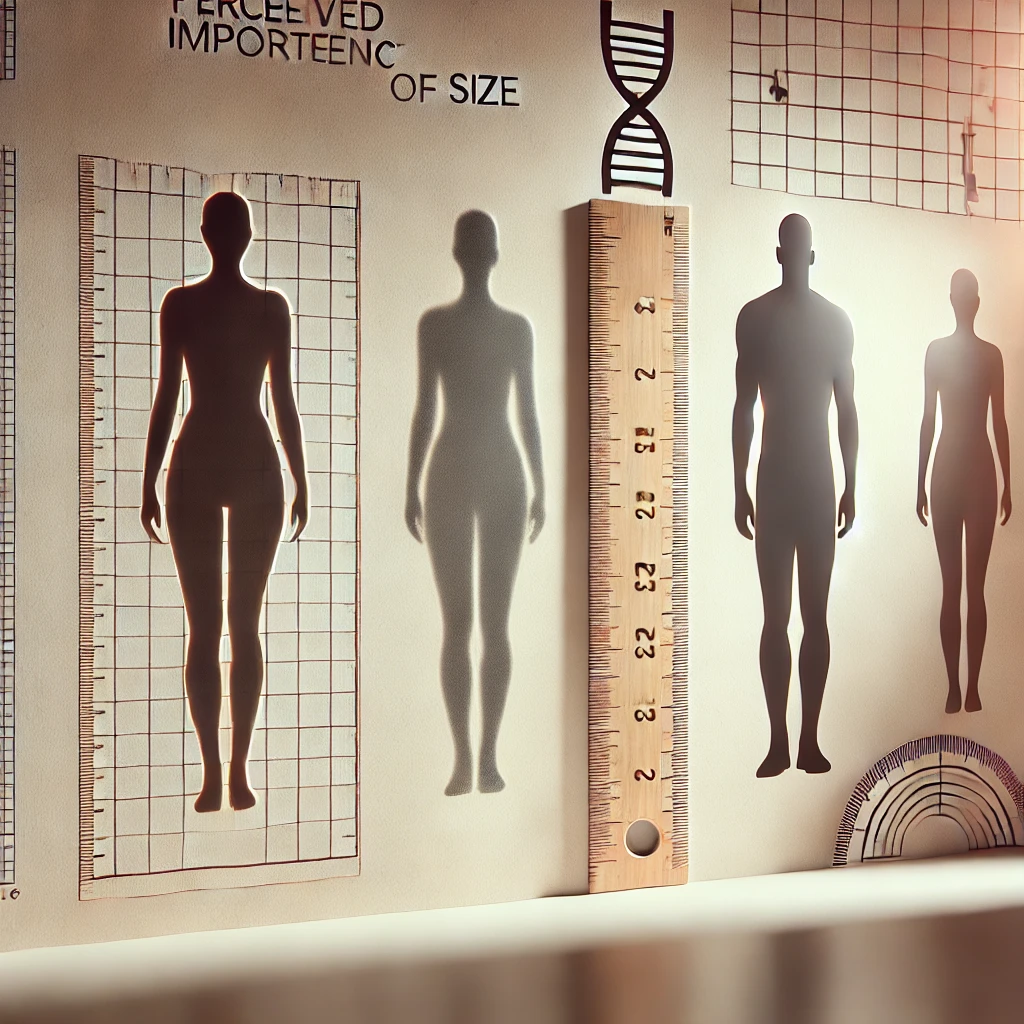The Myth of Size
Despite the persistent myth that penis length is the ultimate gauge of sexual prowess and personal worth, the reality is far more complex. Cultural narratives, sensational media portrayals, and even casual locker room banter have all contributed to an inflated emphasis on physical dimensions. This focus, however, overshadows the multifaceted nature of intimacy, which involves emotional connection, skill, and genuine communication.
In this section, we debunk the notion that size alone determines satisfaction, highlighting that true fulfillment comes from a broader spectrum of physical and emotional factors.
What Does the Science Say?
A wealth of scientific research consistently demonstrates that while physical attributes can play a role in sexual encounters, they are rarely the decisive factor. Instead, studies show that emotional dynamics, technique, and communication contribute far more to a satisfying sexual experience. Consider these key findings:
- Vaginal Orgasm: Many women experience orgasm primarily through clitoral stimulation rather than vaginal penetration, underscoring that penis length has a limited effect on orgasmic response.
- Partner Satisfaction: Surveys reveal that a partner's overall satisfaction is deeply linked to the emotional bond, trust, and open dialogue between couples rather than mere physical measurements.
- Girth Over Length: Emerging research suggests that girth may enhance physical stimulation more effectively than length, as increased girth can provide additional friction and contact during intercourse.
Furthermore, data shows that the average erect penis length is approximately 5.16 inches (13.12 cm), with most men falling within a normal, healthy range. These statistics remind us that the focus on exceptional size is not only misplaced but also potentially harmful.
Psychological Impact
The relentless societal pressure to conform to unrealistic physical standards can have serious psychological repercussions:
- Self-Esteem Issues: Constant comparisons and the internalization of exaggerated ideals can lead many men to feel inadequate, undermining self-confidence and personal well-being.
- Performance Anxiety: Worrying about physical measurements often creates stress and performance anxiety, which not only detracts from the pleasure of intimacy but can also impede natural sexual responses.
- Relationship Strain: An overemphasis on physical perfection can disrupt communication and emotional closeness, placing unnecessary strain on relationships.
In many cases, addressing these concerns with the help of therapy or counseling can pave the way to a healthier self-image and a more balanced approach to intimacy.
Beyond the Physical
Sexual satisfaction is an intricate blend of physical, emotional, and psychological factors. Rather than focusing solely on anatomical features, consider these essential elements:
- Foreplay: A well-executed and enthusiastic foreplay session can heighten arousal and set the stage for a deeply gratifying sexual experience.
- Communication: Honest and open discussions about desires, boundaries, and preferences allow couples to explore what truly brings them pleasure, creating a more personalized and enjoyable experience.
- Technique: The ability to read and respond to a partner’s cues, along with a creative approach to intimacy, often plays a more significant role in sexual satisfaction than physical size.
Emphasizing these aspects fosters a richer and more meaningful connection that transcends superficial concerns.
Societal Pressure and Media Influence
Modern media and cultural messaging continue to shape perceptions of the "ideal" male body, often to the detriment of realistic self-image:
- Pornography: Frequently showcasing exaggerated portrayals of male anatomy, pornography can distort what is considered normal, setting impossible standards for many viewers.
- Marketing: The promotion of enhancement products taps into existing insecurities, perpetuating the notion that physical augmentation is the key to sexual success.
- Cultural Narratives: Although cultural definitions of attractiveness vary widely, global media often converges on a narrow ideal that does not reflect the diverse reality of human bodies.
By critically assessing these influences, individuals can begin to dismantle harmful stereotypes and embrace a more authentic understanding of sexual fulfillment.
Conclusion
In summary, while penis length might capture attention in popular discourse, it is rarely the key determinant of sexual satisfaction or relationship success. True intimacy is built on the foundations of emotional connection, effective communication, and refined technique. Shifting the focus away from superficial metrics to these deeper elements can transform the sexual experience into one that is both fulfilling and resilient.
The real question to ponder is not, "Does penis length matter?" but rather, "How can we cultivate mutual pleasure and foster a deeper, more meaningful connection?" By embracing a comprehensive approach to intimacy, individuals can liberate themselves from unrealistic expectations and enjoy a richer, more rewarding sexual life.

